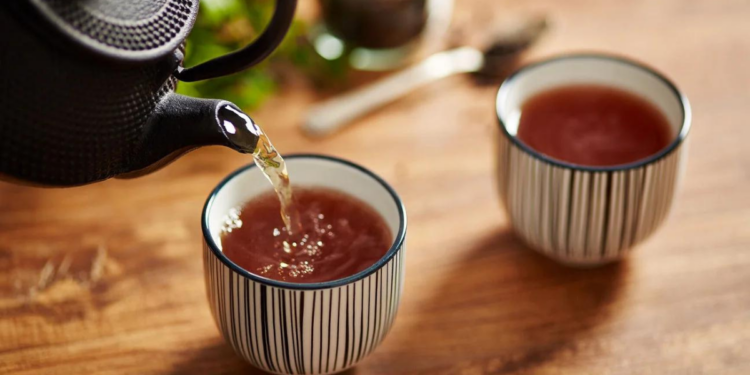Many of us are tea lovers and want to drink it on a daily basis. Tea is the 2nd most important drink that people consume more, while water remains first. Now, the question that arises: Is tea bad for your teeth? Well, the answer is maybe yes or no. If you have a lot of cups of tea, then it may be harmful to your white pearls. It causes cavities and tooth staining that lead to tooth decay with the passage of time. So, drinking tea can impact your oral health positively and negatively also. In this guide, we will discuss the benefits and disadvantages of drinking a lot of tea. So, without wasting your time, let’s start discussing your query in depth.
Is Tea Bad For Your Teeth?
There are many disadvantages to drinking tea on a regular basis. In this section, we will discuss all of these disadvantages that increase your knowledge about consuming too much tea.
1. It Stain Your White Pearls
Tea can stain your teeth. Sometimes, you notice that your teeth are getting yellow without any reason. However, it may be caused by drinking a lot of tea in a day. Now the question is, why does tea cause staining of teeth? The answer is very simple. Tea contains tannins that give color to tea. This substance is the main culprit that stains your teeth. If You want to protect your teeth from staining, then rinse your mouth water after drinking it.
2. Tea Causes Cavities in Teeth
Tea itself doesn’t cause cavities, but its ingredients make it a culprit for cavities. For example, if you add sugar to your tea, then it can lead to cavities. Another example is honey. If you put honey in your tea, then it can also result in cavities.
You can save yourself from tooth damage or cavities by simply adding sugar-free sweetener to your tea. Some people add lemon to their cup of tea. Lemon is not the cause of cavities because it is not sweet, but it can weaken the tooth enamel because of its acidic nature.
What Are The Benefits Of Tea?
Now, it’s time to discuss the different benefits of tea. Everything has good and bad sides. The same is true for tea. There are many benefits to tea. Some of them are mentioned below.
Fluoride, a mineral present in black and green tea, plays a crucial role in protecting your teeth from decay. This mineral is also basically found in plain water and different types of foods. But it is particularly present in tea and also in toothpaste.
One of the best things about this mineral is that it strengthens your teeth and increases the lifespan of your white pearls. With fluoride, one can make one’s teeth healthier than ever before. By incorporating fluoride, you contribute to the overall well-being of your dental hygiene.
Tea boasts another dental health ally: polyphenols. These micronutrients, which have root sources that come from plant-based foods, act as bacteria-fighting agents. The presence of polyphenols in tea goes beyond just flavor. It actively treats gum inflammation, gum disease, and even unpleasant breath.
Additionally, some special types of teas possess alkaline properties that help in the reduction of acid in the mouth. This is particularly beneficial as acid, if not addressed, can lead to enamel erosion. Green tea, with a pH of 7 to 10, and teas like chamomile, mint, and fennel, with a pH between 6 and 7, are among the best choices for minimizing acidity and promoting oral health.
How to Prevent Discoloration?
We all want happy, healthy, and bright smiles. If you are also, then follow the below-mentioned guidelines to prevent stains from your teeth.
- Brush your teeth regularly, especially after drinking tea. The habit of brushing not only prevents discoloration but also increases the lifespan of your white pearls
- Avoid all those foods and drinks that become the cause of discoloration in white pearls. These drinks and food include: Energy drinks, berries, some certain types of food etc
- Avoid tobacco consumption, and smoking is also one of the root causes of tooth discoloration. So, avoid such a habit in order to protect your white pearls from staining
Final Words: Is Tea Bad For Your Teeth?
The answer to this question is yes. But there are many benefits of consuming tea. It is best to drink it in a limited amount. After drinking, you must rinse your mouth with water in order to lessen the chances of tooth staining.




